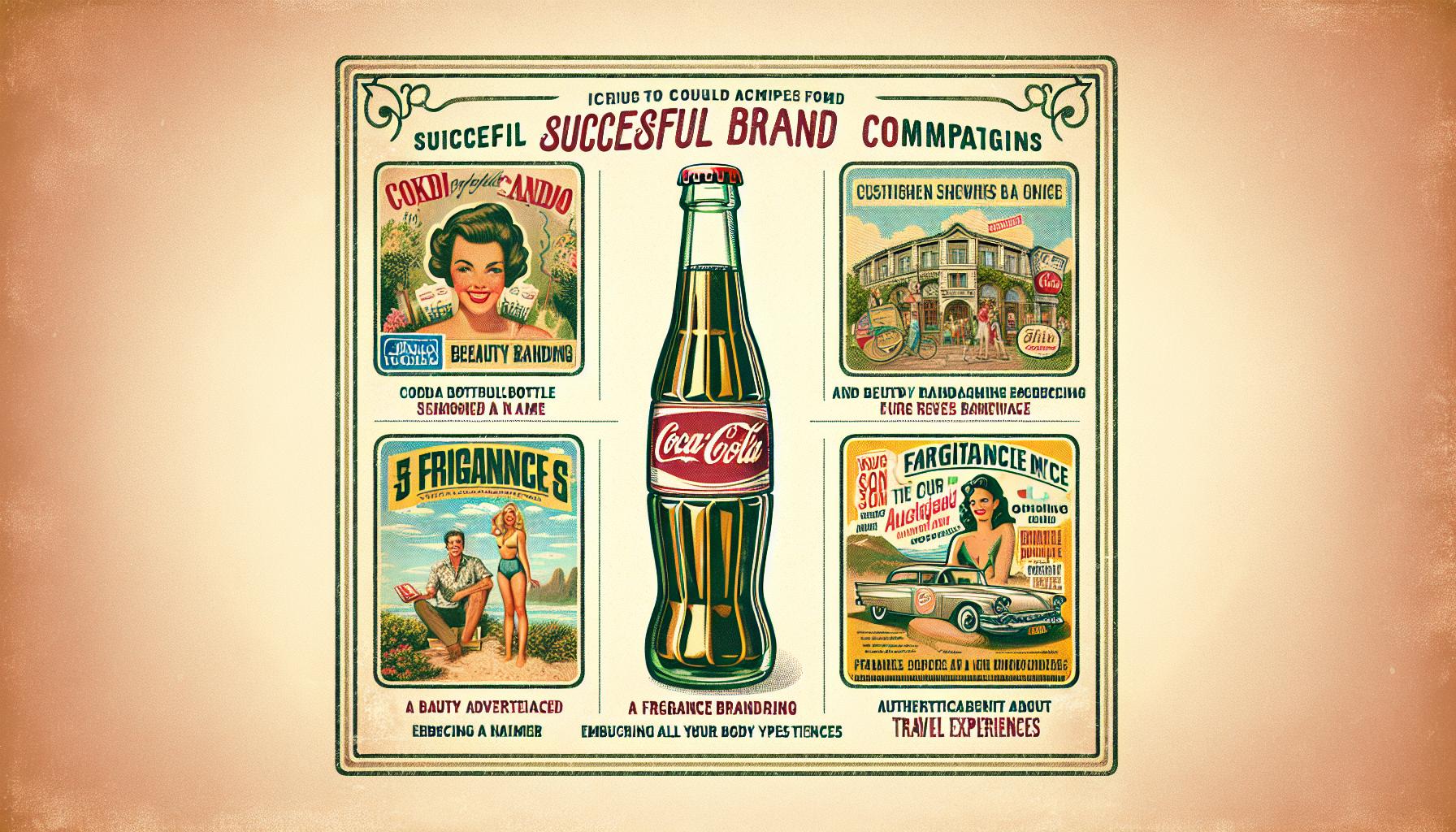Navigating the world of business marketing can be like steering a ship through ever-shifting seas. My journey has shown me that the right strategies are crucial for staying afloat and reaching your desired destination.
I've seen firsthand how a well-crafted marketing plan can transform a business's outreach and growth. Whether you're a startup looking to make your mark or an established company aiming to maintain your lead, staying ahead of the curve is key.
In today's digital landscape, it's not just about what you're offering; it's about how you connect with your audience. I'll share insights on crafting marketing strategies that resonate with customers and drive results.
Types of Marketing Strategies
Online Marketing Strategies
In any successful marketing plan today, online marketing stands front and center. I've witnessed firsthand the growth of digital advertising platforms, which now encompass a diverse range of tactics from SEO to pay-per-click campaigns. A solid SEO strategy can boost website visibility and drive organic traffic while pay-per-click campaigns offer quick exposure and measurable results. Importantly, online marketing isn't static; it's a dynamic beast that must be constantly monitored and tweaked to remain effective.
Content Marketing Strategies
Content is king, or so the saying goes. The vitality of content marketing can't be overstated in crafting a connection with your audience. By sharing my insights, tips, and comprehensive guides, I've seen how high-quality content can establish a brand as a thought leader in its field. The trick lies in blending value-driven content that educates or entertains while subtly integrating brand messages and core values. Interactive content such as quizzes and infographics are also potent ways to engage users and encourage them to spend more time with your brand.
Social Media Marketing Strategies
Social media has revolutionized the way businesses interact with their audience. Personal experiences have shown me that a well-executed social media marketing strategy can massively increase brand awareness and customer loyalty. The key is to tailor content to each platform, whether it's eye-catching visuals on Instagram or insightful threads on Twitter. I've learned that timely and authentic engagement on social platforms can foster a community around your brand like nothing else.
| Platform | Engagement Strategy |
|---|---|
| Visually driven content | |
| Conversational threads | |
| Community building posts | |
| Professional and B2B content |
Email Marketing Strategies
Despite the myriad of new marketing channels, email marketing remains a cornerstone of my approach. Crafting personalized email campaigns that speak directly to the subscriber's interests is an effective way to nurture leads and drive conversions. With segmentation and automation tools, I create targeted emails that reach the right people at the right time with the right offer, leading to substantial ROI for client campaigns.
Influencer Marketing Strategies
The advent of influencer marketing has opened up a novel way for brands to reach potential customers through figures they already trust and admire. Collaborating with influencers can lend credibility to a brand and help tap into new audiences. I carefully select influencers whose values align with those of the brand to ensure genuine and impactful promotions. Keeping track of engagement metrics and ROI is crucial to understanding the effectiveness of these partnerships.
Factors to Consider when Choosing Marketing Strategies

When I'm selecting the most effective marketing strategies for my business, it's vital to consider several key factors that will influence not only the potential success of those strategies but also their alignment with my business goals. Let's delve into what these are.
Target Audience
Understanding my target audience is at the heart of every marketing decision I make. I've found that it's not just about demographics; it’s about getting into the mindset of potential customers. I consider factors like:
- Where does my audience spend their time online?
- What type of content resonates with them?
- What are their pain points and how can my products or services solve them?
By answering these questions, I ensure that my marketing strategies are tailored to address the specific needs and behaviours of my target audience, ultimately improving engagement and conversion rates.
Budget
The budget I set aside for marketing is a crucial determinant of what tactics I can employ. I prioritize strategies that offer the most bang for my buck, often leveraging low-cost, high-impact methods such as:
- Content marketing
- Organic social media engagement
- Email marketing with segmentation
Allocating my budget efficiently allows me to maximize return on investment and avoid overspending in areas that might not yield the best results for my business.
Industry Trends
Keeping a finger on the pulse of current industry trends is non-negotiable for remaining competitive. I actively stay informed about:
- Emerging platforms and technologies
- Changes in consumer behaviour
- Innovations in marketing tactics
By being aware of these developments, I am better equipped to adapt my strategies accordingly and take advantage of new opportunities that could give me an edge in the market.
Competitors
Monitoring what my competitors are doing is a strategic move that provides insights into what works and what doesn't within my niche. I don't copy them, but rather learn from their successes and mistakes to:
- Differentiate my brand
- Find gaps in the market
- Innovate beyond the industry norms
Understanding my competitors' strategies is invaluable for carving out my unique value proposition and positioning my business as a leader rather than a follower.
Resources and Skills
Lastly, the resources and skills at my disposal play a significant role in shaping the marketing strategies I choose. I take stock of:
- In-house talents and capabilities
- Tools and technology required
- Time allocation for strategy implementation
It's important to match my marketing objectives with my operational capabilities to ensure that any strategy I pursue can be executed effectively and sustainably. Whether it requires upskilling my team or investing in new tools, I make informed decisions to enhance my marketing efforts.
By taking into account each of these factors, I can craft a bespoke suite of marketing strategies that not only align with my business objectives but also cater to the continually changing landscape of the market. With a well-rounded approach, I'm equipped to reach my audience effectively, optimise my spending, and keep ahead of the curve in the dynamic world of marketing.
Steps to Develop an Effective Marketing Strategy

Set Clear Goals
Before diving into the tactical aspects of marketing, I always stress the importance of setting clear and measurable goals. These objectives serve as a beacon, helping to steer all subsequent marketing efforts. Whether it’s increasing brand awareness, driving more website traffic, enhancing engagement, or boosting sales, each goal should be SMART: Specific, Measurable, Achievable, Relevant, and Time-bound. By establishing these goals early on, I can ensure that every marketing activity aligns with the overarching business objectives and can be accurately assessed for its efficacy.
Identify Target Audience
Knowing who I'm trying to reach is pivotal. To avoid a scattergun approach, I take the time to Identify My Target Audience thoroughly. This means looking beyond mere demographics and diving into psychographics—understanding the interests, behaviors, and pain points of my potential customers. This level of insight allows me to craft strategies that resonate deeply with my audience, thereby increasing the likelihood of engagement and conversion.
Conduct Market Research
Informed decisions are the backbone of any successful marketing strategy. As such, I prioritize comprehensive market research to gather valuable information about consumer needs, market trends, and competitive landscapes. This research often includes analysis of:
- Consumer Behaviour
- Trends Analysis
- Competitor Activity
With this data in hand, I can make educated choices that reflect the current market dynamics, which greatly enhances the potential success of my marketing strategies.
Choose the Right Channels
Selecting the most effective channels is crucial. This isn’t just a matter of being present on every platform but rather choosing those where my target audience is most active and engaged. Whether it's social media, search engines, or email, each channel has its strengths and limitations. My job is to leverage these platforms to achieve my set goals efficiently, whether that means using SEO to enhance organic reach or social media ads for more targeted campaigns.
Create Compelling Content
I cannot overstate the value of high-quality, compelling content. It acts as the voice of my brand, the hook for my audience, and the driver of my marketing messages. Therefore, I put significant effort into creating content that:
- Informs
- Engages
- Converts
Every piece of content, from blog posts and videos to ads and social media updates, is crafted to reflect my brand’s values and appeal to the interests and needs of my audience.
Implement and Monitor the Strategy
Execution is everything. Even the most meticulously planned marketing strategy can falter without proper implementation and monitoring. I implement my strategies with attention to detail and adjust as needed based on performance metrics. By continually monitoring these metrics, I gain insights that enable me to refine and optimise my approach on-the-fly. Key performance indicators (KPIs), such as engagement rates and conversion ratios, become invaluable in ensuring my marketing efforts yield the desired results.
Examples of Successful Marketing Strategies

Coca-Cola's "Share a Coke" Campaign
I've seen firsthand the power of personalization in marketing, and Coca-Cola's "Share a Coke" campaign was a prime example. Launched in Australia in 2011, this campaign swapped the iconic Coca-Cola logo on bottles with common first names, inviting consumers to find a bottle with their name or that of a friend. The idea was brilliant in its simplicity, creating a personalized experience that encouraged sharing both online and offline. This strategic shift led to a marked increase in consumer engagement and sales across multiple markets.
Dove's "Real Beauty" Campaign
Dove has consistently been at the forefront of empowering marketing initiatives; however, their "Real Beauty" campaign, initiated in 2004, truly set a precedent in the industry. Dove's choice to feature real women, with diverse body types, outside the stereotypical beauty norms, resonated deeply with the audience. It wasn't just about selling soap; it was about challenging beauty standards and building consumer trust. The campaign's success is indicated by its longevity and ability to remain relevant decades later.
Old Spice's "The Man Your Man Could Smell Like"
When Old Spice launched "The Man Your Man Could Smell Like" campaign in 2010, they redefined their brand image entirely. By combining humour with an impossible-to-ignore central character, the campaign instantly caught the audience's attention. I recognize that the transition from traditional masculinity to a more playful, self-aware tone was a risk, but it paid off by reinvigorating the brand and appealing to a broader demographic. This campaign's virality was a solid testament to the power of creativity and humor in marketing.
Airbnb's "Live There" Campaign
Airbnb's "Live There" campaign, which launched in 2016, beautifully encapsulated the brand's ethos of belonging anywhere. By encouraging travellers to shun tourist cliches and live like a local, they tapped into a growing desire for authentic travel experiences. Airbnb’s approach to use real stories from hosts and travellers gave the brand genuine narrative depth. As someone who's keenly aware of marketing trends, I've seen how the authenticity angle can significantly impact consumer decisions, and Airbnb leveraged this to great effect.
Conclusion
Mastering the art of marketing is no small feat but it's clear that a strategic, audience-centric approach is key. By leveraging the strengths of various marketing channels and focusing on genuine engagement, you can create campaigns that resonate deeply with your target audience. Remember, it's not just about being seen—it's about creating a memorable impact. Whether it's through a personalised email or a creative social media blitz, the goal is to foster connections that drive loyalty and growth. Stay adaptable, measure your results, and never stop refining your strategies. That's how you'll stay ahead in the ever-evolving landscape of business marketing.
Frequently Asked Questions
What are the different types of marketing strategies discussed in the article?
The article elaborates on various marketing strategies including online marketing, content marketing, social media marketing, email marketing, and influencer marketing.
How should content be tailored according to different marketing platforms?
Content should be tailored to suit each platform's audience, ensuring engagements are timely and authentic to effectively connect with the audience.
Why is email marketing considered important in this article?
Email marketing is highlighted as essential due to its direct approach and proven effectiveness in reaching and engaging customers.
What role does influencer marketing play according to the article?
Influencer marketing is depicted as a way to leverage trusted figures to reach potential customers, due to their ability to influence purchase decisions within their follower base.
How does the article suggest companies measure the effectiveness of their marketing strategies?
The effectiveness of marketing strategies should be measured by tracking engagement metrics and the return on investment (ROI) to understand their impact.
Can you give examples of successful marketing campaigns?
Examples of successful campaigns include Coca-Cola's "Share a Coke," Dove's "Real Beauty," Old Spice's "The Man Your Man Could Smell Like," and Airbnb's "Live There," showcasing personalization, creativity, and authenticity.
Table of contents
- Types of Marketing Strategies
- Factors to Consider when Choosing Marketing Strategies
- Steps to Develop an Effective Marketing Strategy
- Examples of Successful Marketing Strategies
- Conclusion
- Frequently Asked Questions
- What are the different types of marketing strategies discussed in the article?
- How should content be tailored according to different marketing platforms?
- Why is email marketing considered important in this article?
- What role does influencer marketing play according to the article?
- How does the article suggest companies measure the effectiveness of their marketing strategies?
- Can you give examples of successful marketing campaigns?




